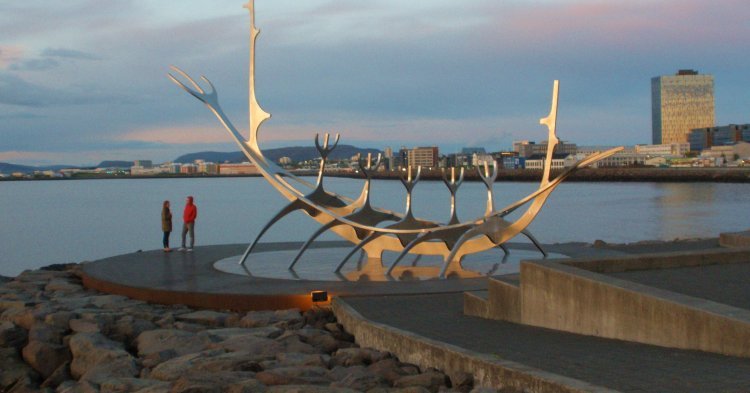No new faces
The general election on 27th April gave power to two well-known parties – the Independence Party, which has participated in every government between 1980 and 2009 and was in office when Iceland’s commercial banks collapsed in 2008, and the Progressive Party, its main rival and partner in previous coalitions. Both parties are against Iceland joining the EU or the euro.
The ruling pro-European Social Democrats, which only won nine seats in parliament this time around, conceded the biggest defeat any ruling national party has suffered since independence from Denmark in 1944. It was voted in after the collapse of the Icelandic banking sector in 2008. The liberal government led by the Social Democrats and the Left-Green movement then was forced to seek a bailout from Europe and the International Monetary Fund, after the currency tumbled, and levels of inflation and unemployment soared. Since then, Iceland’s economy has made a sustained recovery by 2.9 per cent in 2011 and 1.6 per cent in 2012, beating the EU and Eurozone figures.
Unemployment stood at 5.1 per cent in February this year, less than half the EU rate. But Icelanders grew frustrated after years of austerity measures, imposed by the Social Democrat coalition.
EU negotiations brought to a standstill
The outgoing Social Democrat government applied for EU membership in July 2009 in the midst of a banking and economic crisis. Since then, it has closed 11 of the 33 negotiation chapters in the EU’s body of legislation, known as the acquis communautaire. Talks have not yet touched upon the sensitive chapter of fisheries, where Icelanders fear their fishing rights would be eroded by demands from Brussels to allow access to foreign boats.
Before opening accession talks, Iceland already enjoyed a high degree of integration with the EU. It participates in the single market and applies about two-thirds of EU laws. The country is a member of the European Free Trade Association since 1972, the European Economic Area (1994) and the border free Schengen area (2001). Through the EEA, Iceland participates with a non-voting status in certain EU agencies and programmes, including enterprise, environment, education and research programs. Iceland also contributes funds to “social and economic cohesion” in the EU/EEA. Iceland also frequently consults the EU on foreign affairs and aligns itself to EU foreign policy. The country also participates in EU civilian peacekeeping missions.
EU accession not as attractive as before
The outgoing social democrats had argued that joining the EU would provide long-term security. Immediately after the bank crisis, support for EU membership rose as some saw it as a way to bring economic stability in the future. But Europe’s sovereign debt problems reduced interest in joining the bloc. The April election is viewed as a vote against EU membership with only 25 percent of Icelanders supporting EU accession, according to polls. An advisor to Sigmundur Gunnlaugsson, leader of the Progressive Party and new prime minister, was quoted as saying that no timing has been set for the referendum other than it will be held within the next four years. Before the referendum, the government would submit a review of Iceland’s relationship with the EU to parliament, but the referendum would not depend on that review.
Various reactions came from the political parties of the European Union. Hans Van Baalen Dutch MEP, spokesperson on Iceland for the ALDE Group in the European parliament, said that the Liberal Democrat Group “strongly supports EU membership for Iceland. On the other hand, Martin Callanan MEP, the leader of the European Conservatives, which are affiliated to Iceland’s Independence Party, welcomed the decision.
In the United Kingdom, Nigel Farage, the leader of the anti-EU UK Independence Party, described the development as “fabulous news” for the Icelandic people. “Iceland clearly wants to protect its democracy, its fisheries and its economy” he said, adding: “This move by Iceland shows that the EU is more and more perceived as a failing political and economic project – a bit old hat really.
It would seem that the EU has lost the appeal it once had for countries seeking economic stability and access to free trade as the Union fails to emerge from its crisis. The UK is now openly questioning its allegiance with the EU while other members like Denmark have distanced themselves from the goal of euro adoption to protect their economies. Despite these hard times, the EU must reaffirm the attractiveness of its enlargement policy and reiterate support for prospective MS.


Follow the comments: |
|
